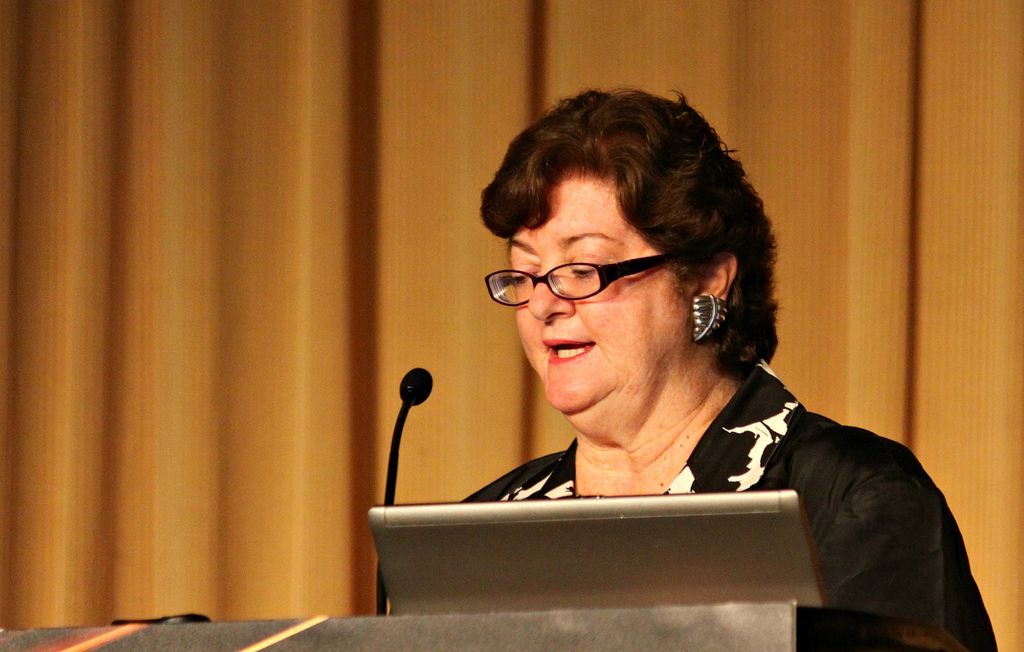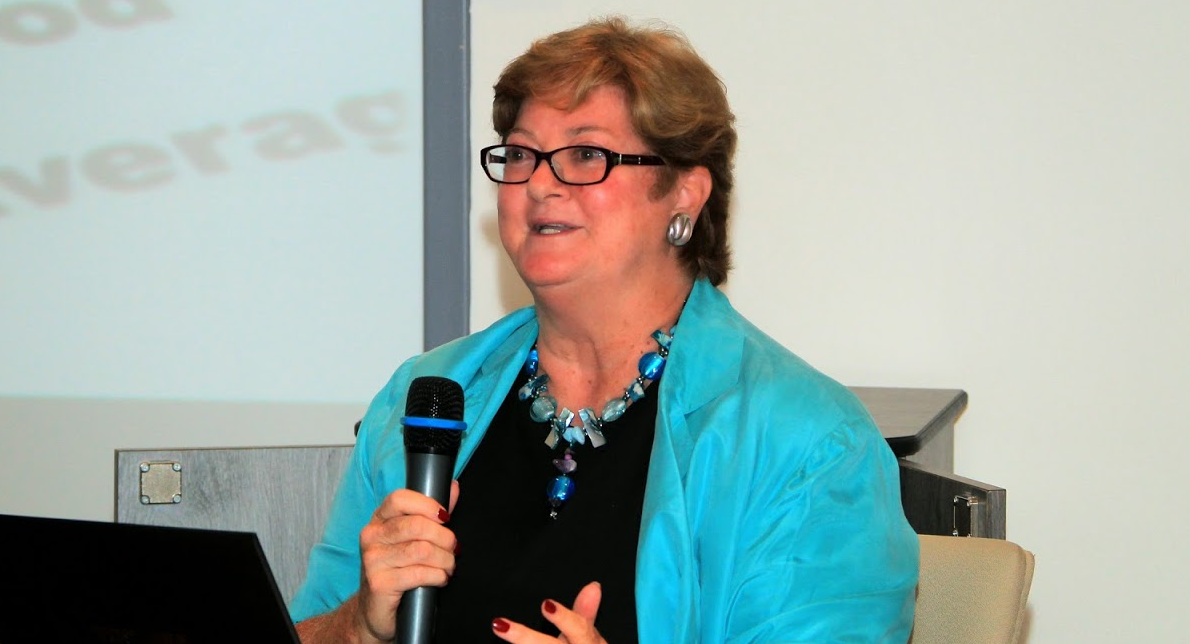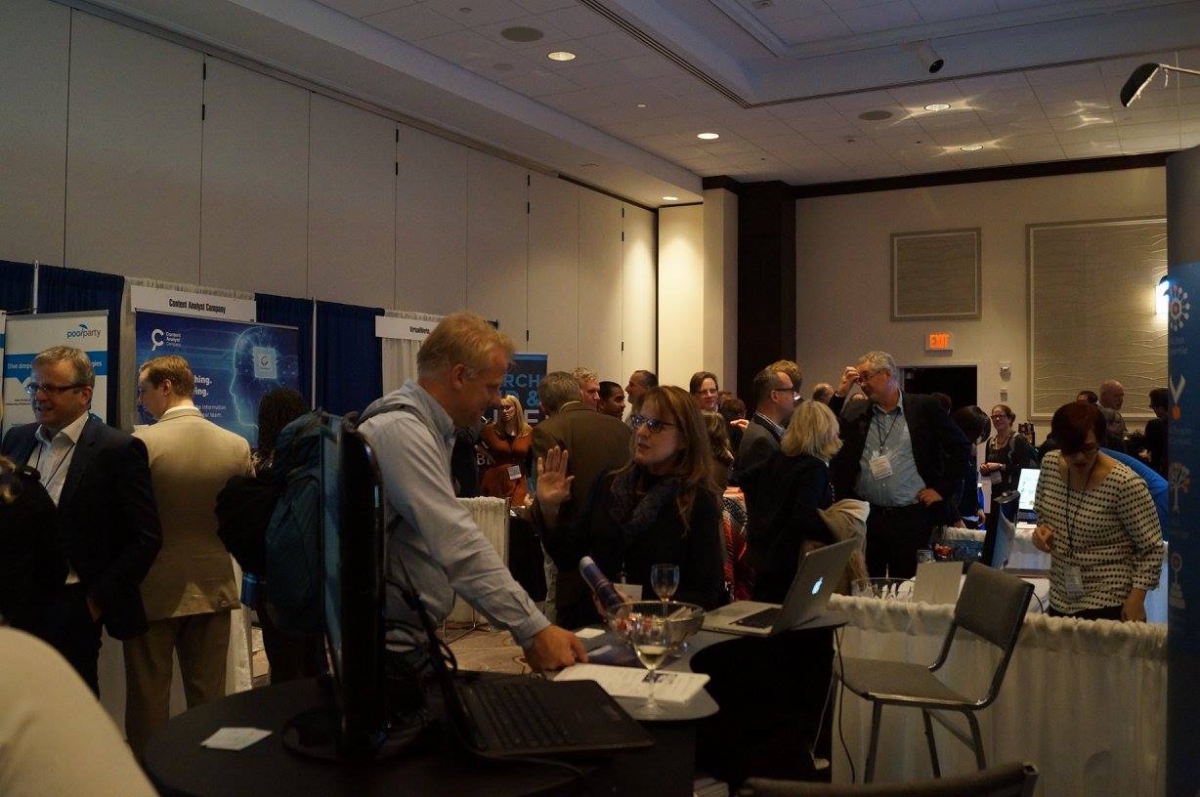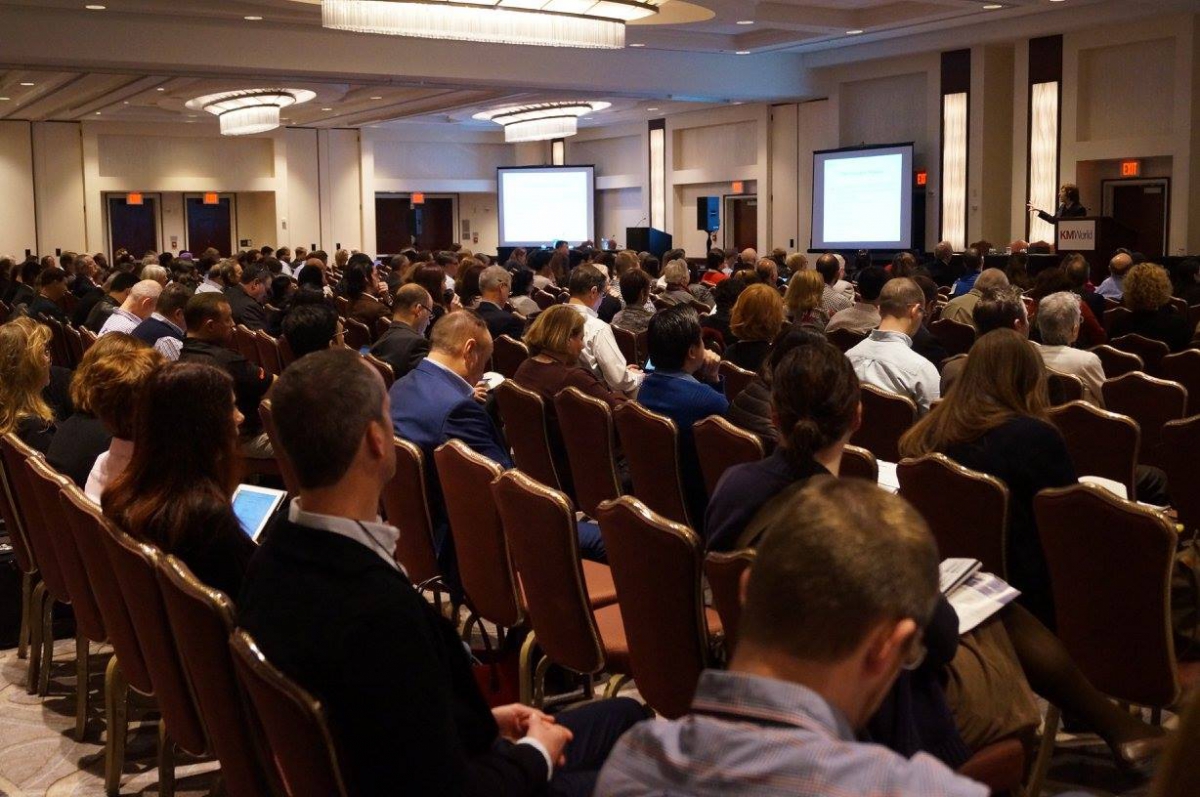TallyFox Exclusive: Jane Dysart on Knowledge Management and KMWorld Conference

Posted by TallyFox on 05 November 2016
For people in the Knowledge Sharing industry, the name Jane Dysart is well known.
She is the principal of Dysart&Jones Associates and the program director for KMWorld, the most important event in our industry, gathering dozens of experts and hundreds of visitors each year, which we supported last year by becoming a platinum sponsor and presenting Tallium to the audience.
We opened our interview with a hot topic: the conference itself.
TallyFox: What's the goal of this year's topic: Hacking KM: people, processes and technology?
Jane Dysart: It's about trying to see KM in a different way. If you keep doing the same things you'll keep getting the same results, and in an effort to change this, we were looking for something which could offer different perspectives and help us come up with various ideas for connecting people to knowledge, building those relationships faster to allow people to be more productive in their work and allow organisations to become more agile, able to think and do things faster.

TallyFox: This is an excellent topic! We found out by interviewing many experts for our blog that this is one of the issues they would like addressed. Do you personally have a theory about why so many KM systems fail?
Jane Dysart: The biggest piece seems to be organisational culture which relies on the leadership of an organisation. A big emphasis must be placed on openness and transparency, the ease with which people can connect to each other inside that organisation, without a lot of barriers. I believe that's what helps people transfer their knowledge to others.
TallyFox: Where do you see software in this process?
Jane Dysart: The technology behind KM tools has advanced greatly from where it was ten or twenty years ago (believe it or not, the first KMWorld was twenty years ago). When I think of last year's discussions around the fast decision-making process that cognitive computing can help with, I see technology enabling people to do their jobs better. Software makes a difference, but still, a lot depends on the culture of the organisation.
TallyFox: What results do you see Open-source Cognitive Computing and AI tools playing in the next two to three years when it comes to knowledge sharing?
Jane Dysart: Cognitive computing is something that I think is quite large; we did have a number of sessions last year around the topic, and we will this year as well. My take is that cognitive computing will become available, not just for large, Fortune 500 companies, but will also be accessible to small to medium-sized companies to improve the knowledge sharing process.
TallyFox: In your 20 years of managing the KMWorld conference you are in a unique position to see trends. How has KM evolved in the past 20 years and the where do you see it going in the next five?
Jane Dysart: It's interesting, the term KM or Knowledge Management is one that I have always struggled with because it means something different to everyone. I try to use Knowledge Sharing because it depicts the actual process that is critical within organisations. The knowledge sharing part I think has always been there but in the last twenty years the term Knowledge Management has sort of gone up and down in popularity, but I think there are a lot of activities that fall under the umbrella of knowledge sharing. I like to have Stan Garfield, who has done a lot of work around knowledge sharing for many years, talk at the KMWorld conference about all the different activities which involved knowledge sharing, being done over the years. It always raises an interesting discussion.
TallyFox: Would you say that the term KM has been redefined in time or that the whole process has grown or improved in time?
Jane Dysart: I think it's really improved because processes have been refined. People know what it is they need, what tools to use. They understand that culture is a big part of it, so I definitely think KM has improved and that organisations who are collaborative, who do know how to share knowledge really do have a leg up on their competition.

TallyFox: What would be your advice to organisations that still don't have knowledge sharing practices in their workforce?
Jane Dysart: Come to KMWorld! We have the whole teams come to KMWorld because we have a number of events that staff from many parts of an organization can benefit from. There is a part of KMWorld that's more around the knowledge sharing, the digital workplace, dealing with culture and change management, but we also have the Enterprise Search and Discovery topics because the process of searching and finding data and information in an organisation is really important. We have the SharePoint Symposium because many organisations are using SharePoint as a tool, and we also have the Taxonomy Boot Camp which helps with the infrastructure for searching, finding, and categorizing of information within an organisation. Some organisations bring their Knowledge Management people, some bring their Human Resources, some bring their technical people and they all attend different conference sessions then talk about it together afterwards. We really try hard to provide the knowledge that could truly transform an organisation. We encourage attendees to network and share their knowledge not only over breakfast and at receptions, but also in our Knowledge Café and Communities of Internet events.

TallyFox: Do organisations know how they can profit from investing in a knowledge sharing system?
Jane Dysart: Proving the value and the impact of a knowledge management system is one of those more intangible things. There are a lot of great examples where organisations have found a person who knew a vital piece of information or knew how to do a particular process so they didn't have to recreate it from scratch, and it saved them a lot of money. What we try to do with the conference is to have practitioners talk about the evaluation process in their organisation, the way they got executive support and how they proved that it really made a difference in their organisation. It will always be a challenge because it is related to the knowledge in our heads and how we share it.
TallyFox: What does knowledge sharing mean to you?
Jane Dysart: To me it means having the right pieces to make a decision or to do your job. That piece of information or knowledge; it can be written, it can come through a colleague, it can appear in a facebook type system behind the firewall (such as the one USA army has) which contains the knowledge that others could use. To me, it's sort of getting the right pieces that allow you to function in your in your job or help you in your decision making.
TallyFox: What do you personally like about your job?
Jane Dysart: It's really interesting for me to deal with ideas, to see what people are doing and to connect with people from many different industries who are all trying to do the same thing: help their organisations succeed by making sure that everyone has the right tools, processes and systems in place so people can collaborate share, innovate and connect in person, or virtually through an intranet or other social system.
TallyFox: How will you at KMWorld help organisations do all that?
Jane Dysart: We try to do that with our program. On the first day of the conference we have a lot of workshops, longer and more in-depth sessions which focus on knowledge transfer. For example – storytelling, which is something that a lot of people use to help transfer knowledge and build a knowledge sharing culture. We look KM strategies and their impact through the eyes of practitioners. The main KMWorld conference begins on Tuesday November 15th along with Taxonomy Boot Camp and Enterprise Search and Discovery followed later in the week by SharePoint Symposium. We put things into streams of topics and we make sure we provide a lot of case studies of the strategies, practices and processes that companies are using. I believe that if you hear what other people are doing, it gives you ideas of what you can try in your own organisation.

We offer a lot around social communication and collaboration too. We look at intranets and digital workspaces, content management and many of the tools and techniques behind that - the content is important because that's what you're trying to transfer. Learning is a big piece as well: how do you learn faster and better, and how do you get people up to speed faster? We also have a whole stream of topics around building and enabling a knowledge sharing culture.
KMW 2016 Promo FINAL from Steve Nathans-Kelly on Vimeo.
As I mentioned there are lots of places in the conference where people can network and talk to others. Thursday morning is a full Knowledge Cafe where people will be at tables, which all have different topics so they can talk to colleagues about dealing with issues and obtain some really specific ideas and suggestions in return. I think there's a lot going on at KMWorld and, as they say, I think people who bring teams get the most out of the conference. I hope you'll help us encourage lots of people to come!
Tallyfox: We will, Jane, we will. And thank you for this interview on behalf of our audience.


Comments
Leave a comment